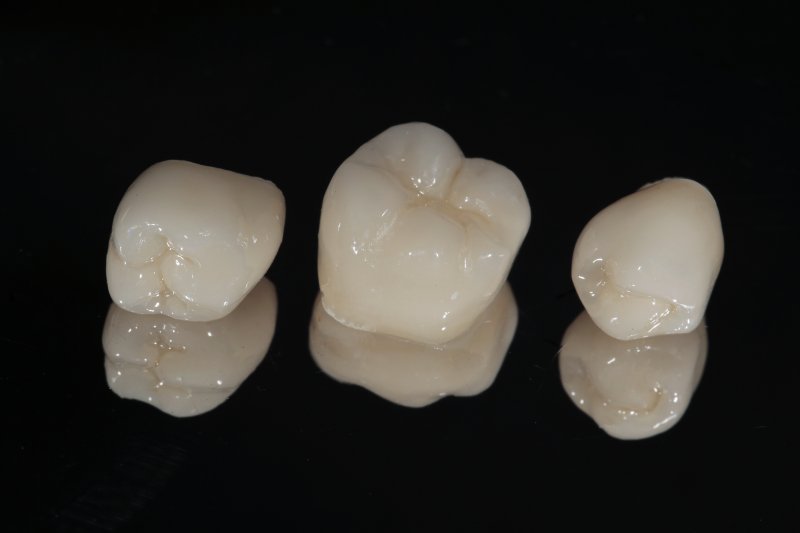
A dental crown has many different uses; it can repair a tooth that’s been damaged by cavities or physical trauma, but it might also be used to improve the appearance of your smile. But how much will the procedure cost? The answer depends on a several different variables. Here are 4 things to keep in mind when figuring out the ultimate price of your dental crown.
1. Material of Dental Crowns
A dental crown can be made of several different materials depending on your needs. Examples include:
- Gold crowns, which tend to be stronger and more durable than other crowns but also tend to stand out in your smile.
- All-porcelain crowns, which are the most natural-looking replacements for front teeth and tend to be more popular for patients worried about appearances.
- Porcelain fused to metal crowns, which combines the strength of the metal with the aesthetics of the porcelain.
In general, porcelain fused to metal crowns tend to be the least expensive while all-porcelain crowns tend to be more costly, and the price of gold crowns will usually be somewhere in between. Of course, prices vary, so you should check with your dentist first.
2. The Treatment Before You Receive Your Crown
In many cases, you might receive a crown as part of another treatment; as such, the price of the other procedure will need to be considered. Most of the time, crowns are placed after you receive root canal treatment (to protect the remaining tooth structure) or dental implants (to serve as the actual replacement tooth while the implants act as roots). Furthermore, any consultation you have regarding tooth repair is likely to have its own cost.
3. Dental Insurance
If you are getting a crown as a restorative procedure, there is a good chance that your dental insurance will help you pay for it. Most plans are willing to provide up to 50% coverage of major procedures like crown placement (although you should confirm your benefits beforehand). Of course, you also need to consider your plan’s annual maximum and deductible, as that could potentially affect the amount your pay out of pocket.
4. The Need for Replacements
A dental crown won’t last forever; sooner or later, it needs to be replaced with a new one. The lifespan of a crown will depend on how well you take care of it. This is something to consider when determining the ultimate cost of a dental crown procedure.
Remember that in many cases, getting a dental crown is necessary to protect your damaged tooth as well as your overall oral health. Keep that in mind when looking at the cost of your restoration; it will always be better to choose the option that’s best for your smile and your bank account over the long term.
About the Author
Dr. Joanne Bancroft has been practicing dentistry for 16 years and counting. At her Colorado practice, JB Dental, she can create and place beautiful, lifelike dental crowns that have been personalized for your unique grin. To schedule a dental crown consultation or ask about other restorations, visit her website or call (720) 458-6561.
